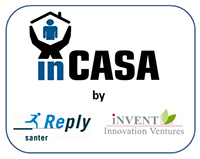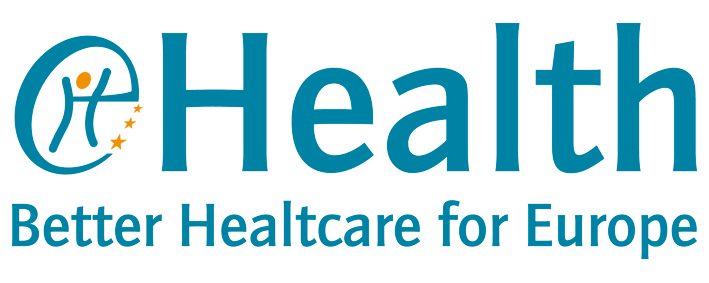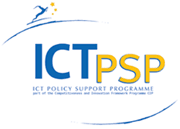The annual conference is aimed at Danish municipal and regional healthcare and social care staff working with telemedicine. The Minister for Economic Affairs and the Interior, Margrethe Vestager, and former Health Minister, Arne Rolighed, are among the many prominent speakers at the conference. The programme can be downloaded here (in Danish).
Hot Spot 3

The Italian national Exploitation Event was organized in the framework of the eHealth conference that was held on the 28th of May 2013 in Rome. REPLY, INVENT and ATC sponsored the event all day, by placing an inCASA stand. The Conference was sponsored mainly by:
Moreover, a specific inCASA workshop was organized within the event demonstrating the inCASA approach, the technical solution, the services and evidence of the inCASA results, presented by involved inCASA Pilot professionals.
The full agenda of the inCASA session in the eHealth Forum is available online
Hot Spot 2

INSERM, along with TID and REPLY, submitted an abstract paper for the annual meeting of the American Society of Clinical Oncology (ASCO). The paper was accepted and inCASA project was presented at a very important event in the healthcare domain on 2nd of June 2012 at Chicago. The inCASA poster can be found here.
The submitted work is focused on the French pilot study and is entitled 'The European inCASA telecare-telehealth electronic platform for the daily assessment of symptoms, weight and activity in cancer patients on chronotherapy at home.'
Additional information regarding the INSERM pilot site activities can be viewed at http://rbc.vjf.inserm.fr
Hot Spot 1

First pilot in planning: The first inCASA pilot is being planned with the partner Agenzia Territoriale per la casa della Provincia di Torino. ATC Torino is the public body with responsibility for social and public housing in the area of Torino and its surroundings. The Pilot will focus on user behaviour, providing an useful profile to search and determine behaviour that could lead to health problems.
More...
The inCASA project supports the Commissions activities in ICT for Health: eHealth.

The inCASA platform allows for the creation of inclusive applications with accessibility for all. The project supports the Commissions campaign: eInclusion - be part of it!

The inCASA project supports the Ageing Well Thematic Network which aims at creating a Community of Actors interested in improving the life of Elderly People by promoting the market uptake of ICT solutions for Ageing Well!

Sign In
About the inCASA project
inCASA will create citizen-centric technologies and a services network to help and protect frail elderly people, prolonging the time they can live well in their own home. This goal will be achieved by integrating solutions/services for health/environment monitoring to collect and analyze data in order to profile user behaviour, implement customized intelligent multilevel alerts/communication services. Data will be made available to care services through a Smart Personal Platform with an embedded Behaviour Analysis Application which will include: access policies to preserve privacy; planning for day-by-day activities and therapies with multiple alerts; co-ordination of local public Social and Health Care Services; and help to deploy specialist community based services. inCASA further investigates the issues of designing ideal specialist services to support activities that are community based – one type will not fit all. By considering the European and different health sector dimensions, it will identify common service delivery paradigms (business models), but can explore how these are delivered in the scenarios to determine optimum clinical models.
Target users and their needs
Target users of inCASA project are (for Pilots) European citizens, over 65 years old, living at home alone and with a sufficient level of autonomy and self-care ability. They may have a need to improve self-confidence and ability to cope with day-to-day life, in order to and increase independence and prolong the time they stay in their own home.The final Commercial solution will focus on various fields, for example chronic disease.
Usage
People at home will live their lives as usual, but Home Sensor Networks and Human Monitoring Sensors (HMS) will monitor their lifestyle and will interact, if needed, with the citizen themselves or with the Service Provider.
Technology
The main technologies of the Solution are:
- Home Sensor Network (HSN) and Domotic Devices : environmental wireless sensors
- Human Monitoring Sensors (HMS): portable/wearable human monitoring devices
- Base Station connected to HSN and HMS to collect and send data
- Smart Personal Platform (SPP): behaviour application to elaborate data coming from HSN and PHS + Social and Health care data repository for data analysis and diffusion to a variety of professional users
- Middleware
Home Sensors Network, Base Station: Commercial solutions; Human Monitoring Sensors: reuse of pre-existing devices (according to pilot decisions); Middleware - Hydra Project; Smart Personal Platform – R&D Santer Reply; Domotic Devices: R&D Telefonica TID
Sustainability
A business model based on a public-private partnership – to adopt an ontological perspective on exploration of innovative service concepts and value creation based on the analysis of economic value creation and exchange of value objects between stakeholders.
The business models will include and measure values created by:
- Primary end-users: improved quality of living and health, mobility, staying longer in the workforce, etc.
- Secondary end-users: improve case management, effectiveness, better resource utilisation, etc.
- Tertiary end-users: cost-benefit, quality of healthcare, interaction of health and social carers
- Business actors: profitability and sustainability of commercial services and supplies
inCASA will provide useful tools for professional users; e.g. elderly people‟s profiles could be used by healthcare professionals to set therapies and to plan social and therapeutic activities.
See also...
Project vision
Project objectives
inCASA pilots
Â
 |
 |
 Organizations involved Organizations involved |
|||||||
 |
 |
 |
 |
 |
 |
||||
 |
The inCASA project is partly funded by the European Commission under the ICT Policy Support Programme | See all... | |||||||

 Posted by
Posted by 